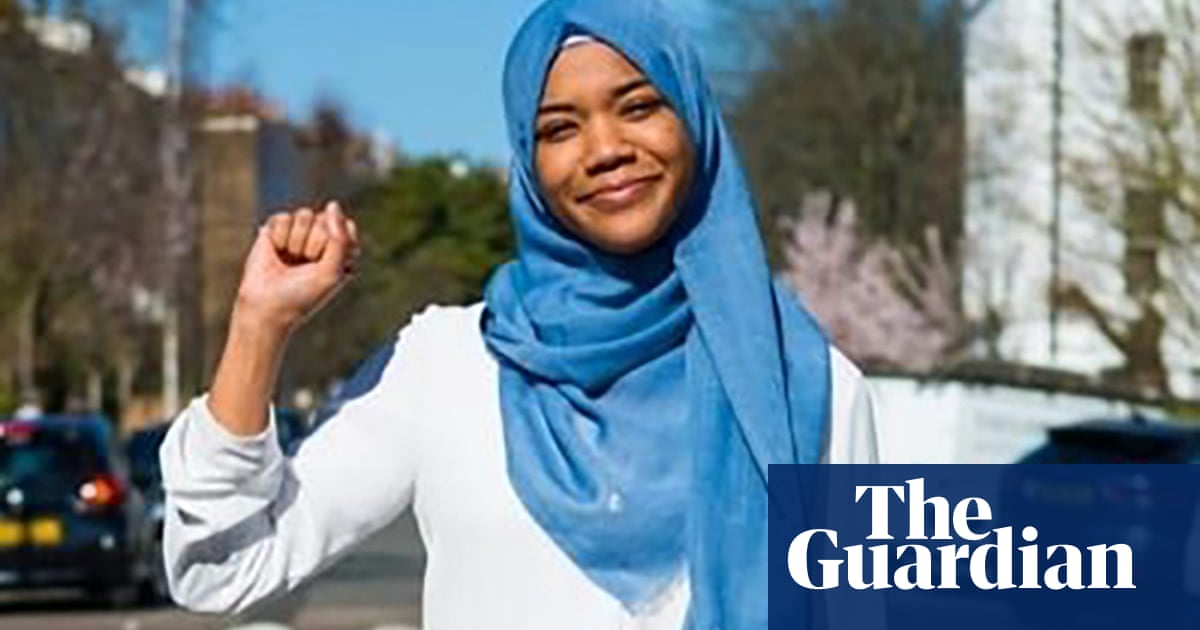
Show caption Shaima Dallali, president elect of the National Union of Students, will prioritise mental health crisis among students Photograph: Twitter Students New NUS leader welcomes antisemitism inquiry, but fears for her safety Shaima Dallali, who takes up her post in July, says she has been subjected to Islamophobic abuse online Sally Weale Wed 20 Apr 2022 06.00 BST Share on Facebook
Share on Twitter
Share via Email
Shaima Dallali, the incoming president of the National Union of Students, is supporting an investigation into allegations of antisemitism within the organisation she will soon lead – but says the controversy has made her feel unsafe after she became a target for online abuse and violent threats.
In an interview with the Guardian, Dallali, who is due to start her role in July for a two-year term, said she had been misrepresented since her election and denied that she was antisemitic.
“The investigation is the right thing to do,” she said. “I know quite a few Jewish students feel alienated. This is the first step to start bridging the gap and reaching out to Jewish students and ensuring that Jewish students feel like they have a place in NUS, so I do welcome it.”
As the new NUS president, she says her priorities are the mental health crisis among students. She wants a democratised, decolonised education system, and she wants to bridge the gap between the national body and student unions around the country.
But those plans have been overshadowed by the controversy that led to the independent investigation announced last week. It followed complaints from Jewish student organisations, including the Union of Jewish Students (UJS), and a letter signed by 21 former NUS presidents urging the NUS to address long-running concerns over antisemitism and Dallali’s own social media posts.
After Dallali’s election the UJS has strongly objected to comments she is alleged to have made previously, including a post 10 years ago which read: “Khaybar Khaybar O Jews … Muhammad’s army will return Gaza”, referencing a 628 assault on Jews.
Dallali has apologised for the tweet, saying she is not the same person she was then and has since changed the language she uses to talk about the Israel-Palestine conflict.
Dallali, 27, currently the president of the students’ union at City, University of London said the backlash against her election was part of pattern, seen with previous student leaders including Malia Bouattia, who in 2016 became the first black Muslim woman to become NUS president.
“Unfortunately, as a black Muslim woman, it is something that I expected because I’ve seen it happen to other black Muslim women when they take up positions in the student union or the NUS, where they are attacked based on their political beliefs or their pro-Palestinian stance.”
She said she had received a lot of Islamaphobic, racist online abuse. “I’ve had private messages of people calling me a raghead, people telling me to go and kill myself, calling me a Jew hater and an antisemite. That has been difficult to read.
“And so many threats as well – if I continue to do this then things will happen to me. I just try to delete, to block, I try not to let it get to my head. It’s something I receive every day and I’m continuing to receive. It’s affected me mentally and physically. Sometimes I don’t feel safe.”
After the ex-presidents’ letter, a letter in support of Dallali has been circulating, which calls for there to be simultaneous NUS investigations into Islamophobia and racism, as well as antisemitism.
On the tweet from 10 years ago, Dallali said she has already made an unreserved apology: “I’m not the same person I was. I have developed my political language to talk about Palestine and Israel. I stand by that apology.”
She said that Muslims were not allowed room for growth. “It genuinely is really difficult to have to see these horrible things being said about me. They are not true. This idea that I don’t like Jewish people, or I’m hateful towards the Jewish community is absolutely not true.
“During my time as a sabbatical officer, I’ve worked with the Jewish community to support them, for example to commemorate Holocaust memorial day. My door has always been open to all students regardless of who they are.”
She went on: “I want to reiterate my willingness to work with Jewish students to combat antisemitism, to address their concerns. I want to represent all students and their concerns are important.
“I may at times disagree with people politically,” said Dallali. “Everyone has the right to have their own political ideas, but I don’t hate anyone. I definitely don’t hate the Jewish community. I do believe I can bridge the gap and build bridges.”
As well as the 10-year-old tweet, Dallali has also been challenged over fundraising for the campaign group Cage a couple of years ago which she did not dispute and said she supported the group’s work on Prevent.
She has been criticised for comments she wrote about a homophobic Muslim cleric, which she says were taken out of context, and she has defended taking part in a protest at King’s College London (KCL) where a talk was being given by a former Israeli politician.
“At no point did I target or harass anyone, rather it was an expression of disappointment at KCL for allowing this person to come and talk. Everyone has a right to protest. Everyone has a right to freedom of speech and I was exercising my right like everyone else,” Dallali said.







